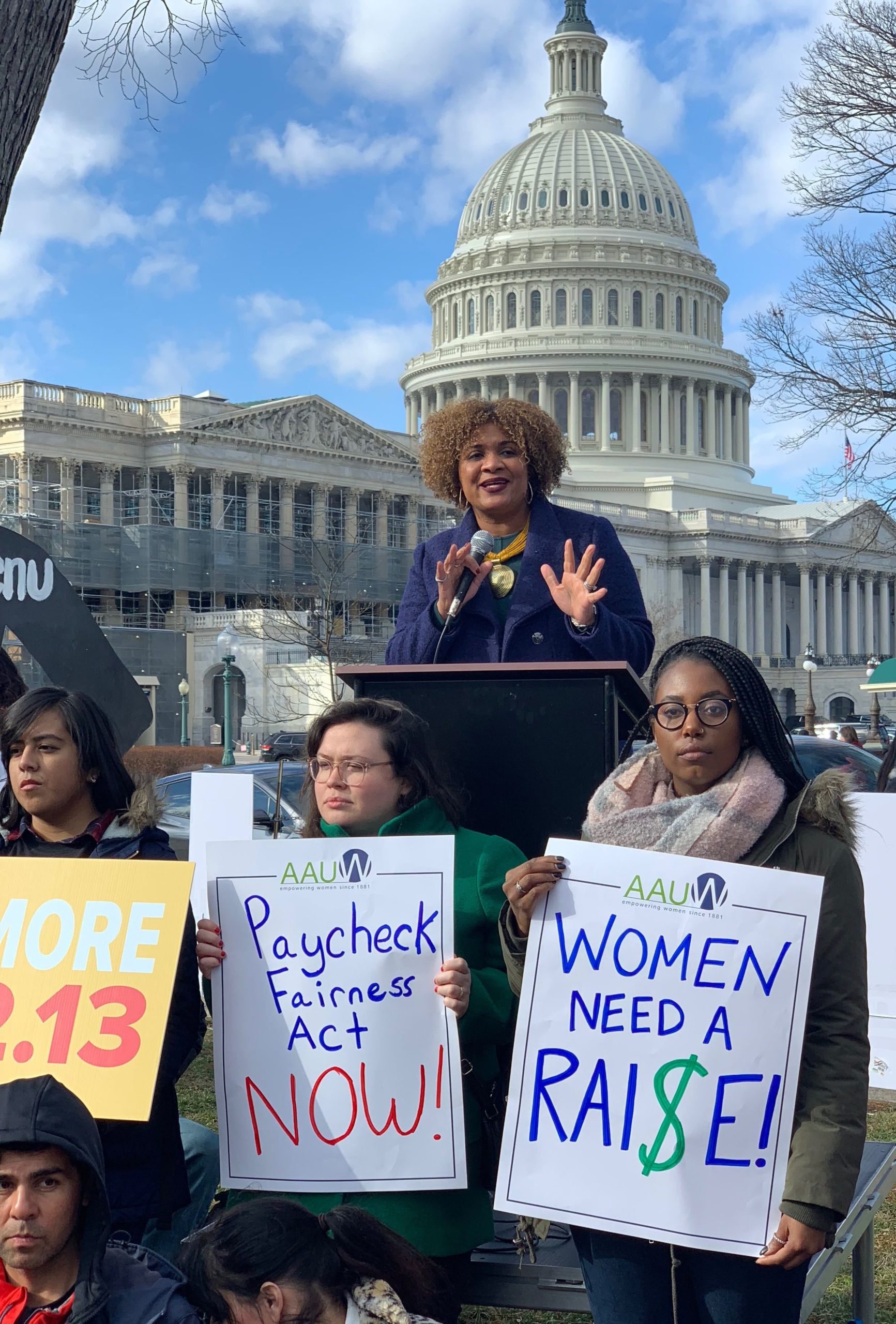Abortion rights, women of color, and LGBTQIA+ people are under attack. Pledge to join us in fighting for gender justice.
Legislating Hate and Ignorance Hurts All in North Carolina
When I first heard of the North Carolina anti-LGBT bill, the only thing I could do was close my eyes, shake my head, and sigh. Each time I opened my mouth to speak, nothing came out because there was too much to say. Where do I start? Which example of hypocrisy, irrationality, or fear mongering do I point to first to demonstrate how unfounded and bigoted this bill is? Should I begin by noting that there are no documented examples of trans people harassing non-trans people in a public restroom, but there are data showing that substantial percentages of trans people have been denied entrance, assaulted, or harassed while trying to use a restroom? That policing bathroom usage is completely impractical, not to mention a violation of privacy, and will make a whole range of people—transgender or otherwise—susceptible to hurtful and potentially destructive gender inquisitions based on dominate stereotypes? That people just need to pee, for heaven’s sake, and why aren’t we focused on just making sure there is a sanitary, private receptacle for their pee?
And then I learned this…
The North Carolina bill guts workplace discrimination protections for virtually everyone. The anti-LGBT bill amends North Carolina’s anti-discrimination law by declaring that it “does not create, and shall not be construed to create or support, a statutory or common law private right of action, and no person may bring any civil action based upon the public policy expressed herein.” With this language, the North Carolina legislature has eliminated employees’ ability to use state law to file lawsuits challenging discrimination on the basis of sex, race, religion, color, national origin, age, or disability. Individuals can still bring workplace discrimination suits in federal court, but the statute of limitations under federal law is much shorter (180 days versus 3 years) and federal district courts in the state are far fewer in number than state courts, which means individuals may have to travel long distances to bring a claim.
Low-wage workers and women will be impacted…
Eliminating this state law cause of action leaves North Carolinians without workplace protections that they have enjoyed for the past 30 years. Low-wage workers who do not have the financial resources or schedule flexibility to travel to a federal district court to file a claim—but who are also among those most vulnerable to workplace discrimination—will be impacted. And this impact will not be negligible, especially on women—17 percent of women in North Carolina live in poverty and nearly 43 percent of single mothers in North Carolina live in poverty. About two-thirds of minimum wage workers in North Carolina are women.

Likewise, victims of certain types of discrimination, like pay discrimination, that are difficult for employees to quickly discover will be impacted by the shorter statute of limitations. While the 85-cent overall gender wage gap in North Carolina is slightly better than the national average of 79 cents, women of color in North Carolina suffer larger wage gaps. Asian American women working full time, year round in North Carolina typically make 78 cents for every dollar white, non-Hispanic men make, while African American women make 64.2 cents. Latinas working full time, year round typically make only 48 cents for every dollar white, non-Hispanic men make, placing North Carolina amongst the ten states with the worst wage gap for Latinas. But North Carolina has just rendered its race and sex discrimination laws unenforceable.
To top it off, the North Carolina bill makes it impossible for local governments to pass their own antidiscrimination ordinances or raise their minimum wage above the state’s minimum wage. And raising the minimum wage is another important tool in securing equal pay for women. Since women are the majority of minimum wage workers, increasing the minimum wage would help boost wages for hundreds of thousands of working women, especially women of color, in North Carolina and would help close the wage gap.
There is no rational explanation for the anti-LGBT elements of this bill nor for the elements gutting state workplace discrimination protections. Hate and ignorance seem to be the only explanation. The dumbfoundingly far reach of this bill is a perfect example of the horrible legislating that happens when lawmakers legislate out of hate and ignorance. ALL North Carolinians will now be more vulnerable to discrimination.



